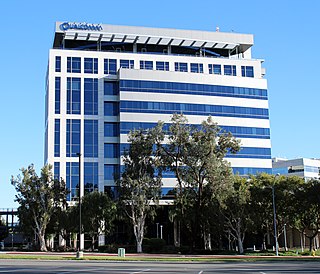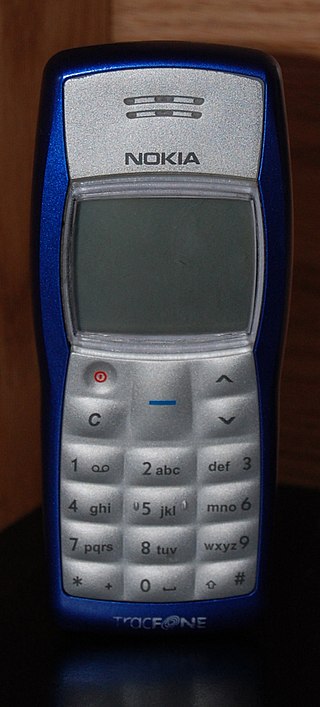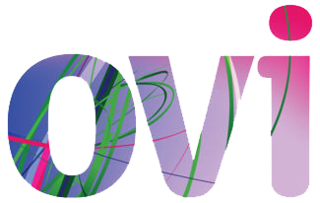
Vitelcom Group was a Spanish manufacturer and distributor of consumer electronics, concentrating on the home entertainment and mobile phone markets. It also provided mobile phone content such as games.

Vitelcom Group was a Spanish manufacturer and distributor of consumer electronics, concentrating on the home entertainment and mobile phone markets. It also provided mobile phone content such as games.
Vitelcom made DVD and VCR equipment under contract using the Funai brand name, mobile phones using the Grundig mobile name under license, plus handheld computer equipment and ADSL modems.
Primary markets were Iberia and Latin America, although Vitelcom had some success in selling mobile handsets to a wider market, either under the Grundig brand or branded by the local mobile network operator.
During 2004 to 2005 Vitelcom was engaged in a patent infringement dispute with Nokia which was resolved before it went to court. [1] [2]
In 2007 the company fell into administration [3] and was wound up in 2008. The name "Vitelcom" is now used by a New Zealand IT company. [4]
Product released: TSM5, TSM30 and TSM1000 [5]

Nokia Corporation is a Finnish multinational telecommunications, information technology, and consumer electronics corporation, originally established as a pulp mill in 1865. Nokia's main headquarters are in Espoo, Finland, in the Helsinki metropolitan area, but the company's actual roots are in the Tampere region of Pirkanmaa. In 2020, Nokia employed approximately 92,000 people across over 100 countries, did business in more than 130 countries, and reported annual revenues of around €23 billion. Nokia is a public limited company listed on the Nasdaq Helsinki and New York Stock Exchange. It was the world's 415th-largest company measured by 2016 revenues, according to the Fortune Global 500, having peaked at 85th place in 2009. It is a component of the Euro Stoxx 50 stock market index.

Telefónica, S.A. is a Spanish multinational telecommunications company with registered office and headquarters located in two different places, both in Madrid, Spain. It is one of the largest telephone operators and mobile network providers in the world. It provides fixed and mobile telephony, broadband, and subscription television, operating in Europe and the Americas.

Qualcomm Incorporated is an American multinational corporation headquartered in San Diego, California, and incorporated in Delaware. It creates semiconductors, software, and services related to wireless technology. It owns patents critical to the 5G, 4G, CDMA2000, TD-SCDMA and WCDMA mobile communications standards.

Teléfonos de México, S.A.B. de C.V., known as Telmex is a Mexican telecommunications company headquartered in Mexico City that provides telecommunications products and services in Mexico. In 2014, Telmex was the dominant fixed-line phone carrier in Mexico. In addition to traditional fixed-line telephone service, Telmex offers Internet access through their Infinitum brand of Wi-Fi networks, data, hosted services and IT services. Telmex owns 90 percent of the telephone lines in Mexico City and 80 percent of the lines in the country. Telmex is a wholly owned subsidiary of América Móvil.

Koninklijke KPN N.V., trading as KPN is a Dutch telecommunications company. KPN originated from a government-run postal, telegraph and telephone service and is based in Rotterdam, Netherlands.

ViewSonic Corporation is an American privately held multinational electronics company with headquarters in Brea, California, United States.

The Nokia 1100 is a basic GSM mobile phone produced by Nokia. Over 250 million 1100s have been sold since its launch in late 2003, making it the world's best selling phone handset and the best selling consumer electronics device in the world at the time. The model was announced on 27 August 2003 and was discontinued in September 2009.

HTC Corporation, or High Tech Computer Corporation, is a Taiwanese consumer electronics corporation headquartered in Taoyuan District, Taoyuan, Taiwan. Founded in 1997, HTC began as an original design manufacturer and original equipment manufacturer that designed and manufactured laptop computers.

The Claro Company, or simply Claro, is a Latin American telecommunications company, part of América Móvil, a Mexican telecom group. Claro serves customers in Argentina, Brazil, Chile, Colombia, Costa Rica, the Dominican Republic, Ecuador, El Salvador, Guatemala, Honduras, Mexico, Nicaragua, Panama, Paraguay, Peru, Puerto Rico and Uruguay. Its Mexican operations are branded as Claro Mexico. The company's name means "bright," "clear," and also "of course," in both Portuguese and Spanish.

América Móvil, S.A.B. de C.V. is a Mexican telecommunications corporation headquartered in Mexico City, Mexico. It is the 7th largest mobile network operator in the world in terms of equity subscribers, as well as one of the largest corporations in the world. América Móvil is a Forbes Global 2000 company. As of Dec 31, 2023, América Móvil had 310.1 million wireless subscribers, and 73.7 million fixed revenue generating units.
Oppo is a Chinese consumer electronics manufacturer headquartered in Dongguan, Guangdong. Its major product lines include smartphones, smart devices, audio devices, power banks, and other electronic products. It was reportedly associated with BBK Electronics, but the company denied this.

Alcatel–Lucent S.A. was a multinational telecommunications equipment company, headquartered in Boulogne-Billancourt, Paris France. It was formed in 2006 by the merger of France-based Alcatel SA and U.S.-based Lucent Technologies, the latter being a successor of AT&T's Western Electric and a holding company of Bell Labs.
Alcatel is a French brand of mobile handsets owned by Finnish consumer electronics company Nokia and used under license by Chinese electronics company TCL Technology. The Alcatel brand was licensed in 2005 by former French electronics and telecommunications company Alcatel-Lucent to TCL for mobile phones and devices, and the current license expires at the end of 2024. Nokia acquired the assets of Alcatel-Lucent in 2016 and thus also inherited the licensing agreements for the Alcatel brand.
DBTEL Inc. is a multinational telecommunications company based in Taipei, Taiwan. Founded in 1979 by Michael Mou, the company initially focused on cordless telephones. In the 1990s, DBTEL once took up 30% of the original equipment manufacturer market share for United States cordless phones. It later became an original equipment manufacturer (OEM) for cell phones. Between 1998 and 2002, it made phones for Motorola and at one point was its largest manufacturer. The two companies ended their contract after legal disputes and weakness in the mobile phone market. After facing numerous challenges, DBTEL, which had unstable OEM sales, transformed from an OEM company into selling its own brand.

Ovi was the brand for Nokia's Internet services from 2007 to 2012. It was designed to be an umbrella brand as Nokia attempted to expand into software and Internet services instead of just mobile hardware. Ovi focused on five key service areas offered by Nokia: Games, Maps, Media, Messaging and Music.

Microsoft Mobile Oy was a Finland subsidiary of Microsoft Devices involved in the development and manufacturing of mobile phones. Based in Keilaniemi, Espoo, it was established in 2014 following the acquisition of Nokia's Devices and Services division by Microsoft in a deal valued at €5.4 billion, which was completed in April 2014. Nokia's then-CEO, Stephen Elop, joined Microsoft as president of its Devices division following the acquisition, and the acquisition was part of Steve Ballmer's strategy to turn Microsoft into a "devices and services" company. Under a 10-year licensing agreement, Microsoft Mobile held rights to sell feature phones running the S30/S30+ platform under the Nokia brand.
Nokia is a Finnish multinational corporation founded on 12 May 1865 as a single paper mill operation. Through the 19th century the company expanded, branching into several different products. In 1967, the Nokia corporation was formed. In the late 20th century, the company took advantage of the increasing popularity of computer and mobile phones. However, increased competition and other market forces caused changes in Nokia's business arrangements. In 2014, Nokia's mobile phone business was sold to Microsoft.

Club Nokia was a mobile internet digital distribution portal, operated by Nokia to provide special offers, paid-for ringtones, picture messages and game content directly to members. Following resistance from its mobile operator customers, Nokia partially closed the service and the brand became solely a consumer service and loyalty portal.

Human Mobile Devices (HMD), formally HMD Global, is a Finnish mobile phone manufacturer. The company is made up of the mobile phone business that the Nokia Corporation sold to Microsoft in 2014, then bought back in 2016. HMD began marketing Nokia-branded smartphones and feature phones on 1 December 2016. The company has exclusive rights to the Nokia brand for mobile phones through a licensing agreement. The HMD brand was initially only used for corporate purposes and does not appear in advertising, whereas the name "Nokia Mobile" is used on social media. As it was launched, the abbreviation HMD stood for Hon Hai Mobile Devices. This was in reference to the main shareholder at the time of its creation: the Taiwanese group Foxconn. In January 2024, HMD rebranded to 'Human Mobile Devices', and will use their own branding on future devices alongside that of Nokia.